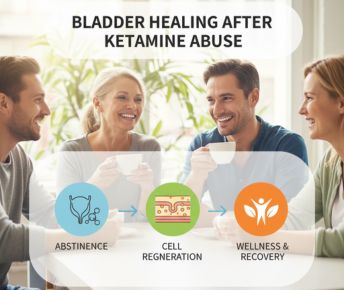Introduction
Fentanyl is an incredibly potent synthetic opioid that has become a critical topic in public health discussions globally.
While it holds legitimate fentanyl drug uses in medical settings for severe pain management, its illicit manufacturing and widespread distribution have tragically contributed to an alarming surge in opioid overdoses and fentanyl addiction.
For individuals struggling with this formidable addiction or for families witnessing its devastating impact, understanding the profound risks, recognizing the signs of fentanyl dependence symptoms, and knowing that effective fentanyl addiction treatment is available can be life-saving.
This blog aims to provide an insightful, granular, and sensitive look into fentanyl: its intended medical applications, the significant dangers associated with its misuse, its severe side effects, and the crucial steps towards fentanyl addiction recovery.
Also Read: What Is Substance Abuse? Signs, Symptoms, and Causes
The Dual Nature of Fentanyl
In controlled medical environments, fentanyl is a powerful ally against severe pain, primarily in chronic pain conditions, particularly for cancer patients, and for pain management after major surgeries. Its potent analgesic properties make it highly effective when other pain medications are insufficient.
Fentanyl drug uses include various prescription formulations designed for slow, sustained release, such as the Duragesic (transdermal patch), which delivers the medication through the skin over several days. Other forms like Actiq (oral transmucosal lozenge, "fentanyl lollipop"), Fentora (buccal tablet), Abstral (sublingual tablet), and Subsys (sublingual spray) are designed for breakthrough pain in opioid-tolerant patients.
Sublimaze (injectable) is used in hospital settings for anaesthesia and severe acute pain. When prescribed and monitored diligently by medical professionals, these forms of fentanyl can significantly improve a patient's quality of life.
Warnings and Side Effects
Despite its medical utility, the potency of fentanyl inherently carries significant warnings and potential side effects.
Even in prescribed use, common side effects can include nausea, constipation, drowsiness, confusion, and dizziness. However, the most critical warning revolves around its extreme respiratory depressive effects, meaning it can slow or stop breathing.
This risk is exponentially higher with illicitly manufactured fentanyl, which is often mixed with other drugs or sold as counterfeit pills, leading to unpredictable and often fatal dosages. The widespread availability of illicit opioid fentanyl has led to an alarming rise in opioid overdose deaths globally.
Beyond immediate dangers, long-term use, even when prescribed, can lead to fentanyl dependence symptoms, where the body adapts to the drug's presence.
These fentanyl dependence symptoms are the uncomfortable physical and psychological effects experienced during opioid withdrawal if the drug is stopped abruptly. Symptoms include severe cravings, muscle aches, vomiting, diarrhea, intense anxiety, and insomnia.
The powerful nature of fentanyl means that even a small miscalculation in dosage can be life-threatening, making it one of the most dangerous opioids of concern in the current public health crisis.
Understanding Fentanyl Addiction
The rapid onset of action and intense euphoric effects of fentanyl make it highly susceptible to fentanyl addiction.
When individuals misuse the drug, whether intentionally or unknowingly consuming illicit opioid fentanyl, the brain's reward system is powerfully activated, leading to a compulsive drive to seek and use the drug.
This pursuit often overshadows all other aspects of life, leading to neglected responsibilities, strained relationships, and deteriorating physical and mental health. The development of fentanyl dependence symptoms means that the body craves the drug, making it incredibly challenging to stop without professional help due to the severity of withdrawal.
Fentanyl addiction is a chronic brain disease, not a moral failing, and it requires specialized, comprehensive care for fentanyl addiction recovery.
Fentanyl Addiction Treatment
Overcoming fentanyl addiction is a challenging but entirely possible journey, and effective fentanyl addiction treatment is paramount.
The first crucial step often involves medically supervised detoxification to manage acute opioid withdrawal symptoms safely and comfortably. This is often followed by Medication-Assisted Treatment (MAT), which uses FDA-approved opioid use disorder medication like buprenorphine, methadone, or naltrexone.
These medications help reduce cravings and withdrawal symptoms, providing stability for individuals to engage in therapy.
Behavioral therapies, such as Cognitive Behavioral Therapy (CBT), Dialectical Behavior Therapy (DBT), and contingency management, are vital components of addiction treatment for fentanyl.
These therapies equip individuals with coping skills, help them identify triggers, address underlying psychological issues, and prevent relapse.
A comprehensive approach to fentanyl addiction recovery often involves a combination of these treatments, tailored to the individual's unique needs.
Specialized Treatment Centers
For those battling fentanyl addiction, seeking addiction treatment for fentanyl at a specialized center offers the most effective path to fentanyl addiction recovery.
These facilities provide a structured, supportive, and medically supervised environment vital for managing severe fentanyl dependence symptoms and withdrawal. Professionals, including addiction specialists, understand the unique challenges of treating such a potent opioid.
Beyond detox, these centers offer crucial therapeutic interventions for long-term fentanyl addiction recovery.
This includes Medication-Assisted Treatment (MAT) with opioid use disorder medication and behavioral therapies. They help individuals address root causes, develop coping skills, and build essential life skills.
A center like Samarpan Recovery provides this holistic care, ensuring personalized addiction treatment for fentanyl for lasting well-being.
Suggested Reading: Myths and Facts About Rehabilitation Centers in Mumbai
Conclusion
Fentanyl poses significant risks due to its potency, leading to severe addiction and overdose. Understanding its fentanyl drug uses, warnings, side effects, and the availability of dedicated fentanyl addiction treatment offers a vital pathway to hope, healing, and fentanyl addiction recovery.
If you or a loved one is battling fentanyl addiction or any other opioid use disorder, Samarpan Recovery offers comprehensive and compassionate addiction treatment.
Our expert team provides medically supervised detox, evidence-based therapies, and personalized care to support your journey towards lasting fentanyl addiction recovery.
Frequently Asked Questions
What is the most serious side effect of fentanyl?
The most serious and life-threatening side effect of fentanyl is respiratory depression, which causes dangerously slowed or stopped breathing, leading to oxygen deprivation and potential death.
How can we stop the fentanyl problem?
Addressing the fentanyl problem requires a multi-faceted approach, including increased access to fentanyl addiction treatment and naloxone, public awareness campaigns, harm reduction strategies like fentanyl test strips, and efforts to disrupt illicit drug supply chains.
Can fentanyl be used for end-of-life?
Yes, fentanyl is frequently used in end-of-life and palliative care for severe, chronic pain management, especially in opioid-tolerant patients. It's often administered via Duragesic (transdermal patch) for sustained pain relief.
What precautions should be taken with fentanyl?
When prescribed, fentanyl requires careful monitoring for respiratory depression and proper storage and disposal to prevent accidental exposure, especially to children. Avoid alcohol and other CNS depressants, and always take it exactly as prescribed.
























 Yes, many offer serene environments and solid therapeutic frameworks. However, quality varies, so it’s essential to research accreditation, staff credentials, and therapeutic depth.
Yes, many offer serene environments and solid therapeutic frameworks. However, quality varies, so it’s essential to research accreditation, staff credentials, and therapeutic depth.




